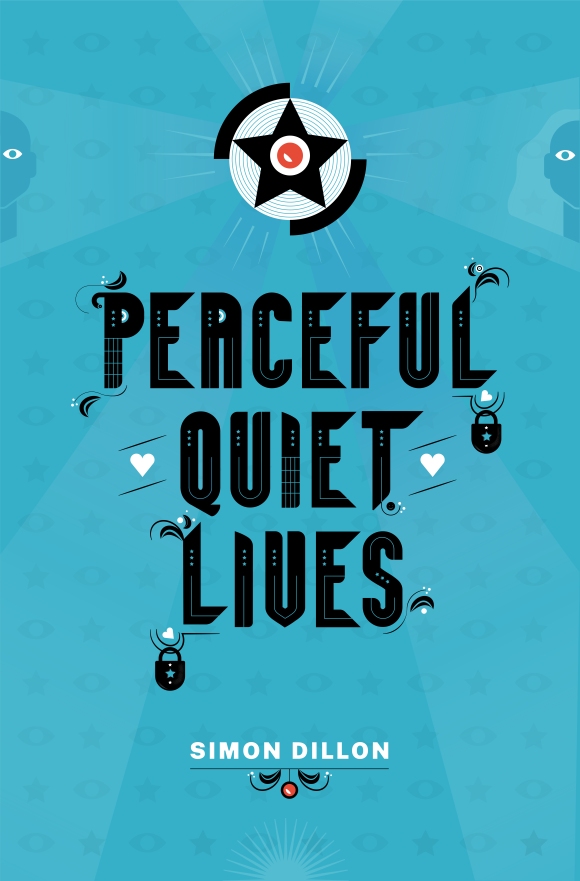
My latest novel, Peaceful Quiet Lives, involved just as much research as usual, though this time into many unexpected areas.
Given the authoritarian political states in the novel, a certain amount of investigation into those with extreme views was inevitable. I looked at a lot of the more cult-like leaders on the US evangelical right-wing, as well as extremists on the left, and their groups and organisations. I also read up on so-called “incel” groups and those who believe they can have loving relationships with an android. At first, I feared the ideas for my novel would be too ridiculous even for a satire, but real life was always three steps ahead of me.

After researching several US cities and states, I took the decision to not name any real city or geographic location in the novel, other than to talk in vague terms about east and west (with California and the west coast having fallen into the sea, following the “big one” earthquake). Apart from anything else, I didn’t like to assign particular social, political, or religious ideologies to any one city, so it seemed best, on balance, to have the cities in the novel remain nameless. It’s also worth mentioning that several parts of the novel deal with news media organisations, for which I drew on my own television experience. This was more for the personalities and their attitudes than the technical side, though I should stress no characters are directly based on real people.
The plot came to me fully formed in early 2018, in a strange “download”. At first, I expected my protagonist Sam to be American, but then I realised I needed an “outsider” perspective for this story, so made him an English refugee (in the novel, an unspecified “Catastrophe” has rendered the UK and Europe uninhabitable). As I wrote the story, little changed from the original outline in terms of characters and events, but I did ruthlessly prune everything I considered “preachy”, I hope successfully. Peaceful Quiet Lives is not intended to be a political statement of any kind, and I wanted the events to speak for themselves, without editorialising.
I also cut a number of lengthy sequences, especially in part two. A chapter where Sam and Eve attend an illegal gathering was removed, largely because it felt superfluous in light of the Halloween party they attend earlier. This gathering involved people indulging in all manner of “rebellious” activity; not just unregistered (and therefore legally “unconsenting”) sexual activity, but also free and frank political and spiritual discussion, without fear of state punishment for expressing undesirable views. In that draft, the priest from the final chapter made an earlier appearance, discussing his resistance work in both nations with Sam. I liked this section of the novel, but took it out because it felt a little on the nose, as well as being unnecessary. I revised the novel so Sam only meets the priest in the final chapter.
If you’ve not yet read Peaceful Quiet Lives, why not give it a go? Here’s the blurb from the back of the book:
Two Nations Under God. Can their love survive in either nation?
Life, love, liberty, and the pursuit of happiness are a distant dream for Sam and Eve. Their forbidden love falls foul of laws in both nations born from the ashes of the Second American Civil War.
A satire of political and religious fears, Peaceful Quiet Lives is a thought-provoking and powerful dystopian future shock.
Peaceful Quiet Lives is available as a download or paperback from Amazon. Order your copy here (in the UK), or here (in the US). You can also order from Smashwords here.




















You must be logged in to post a comment.